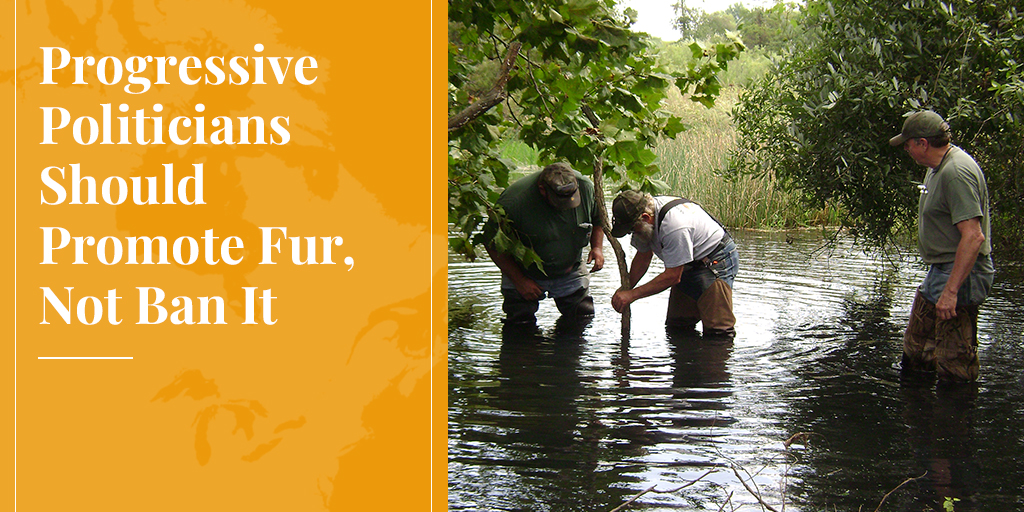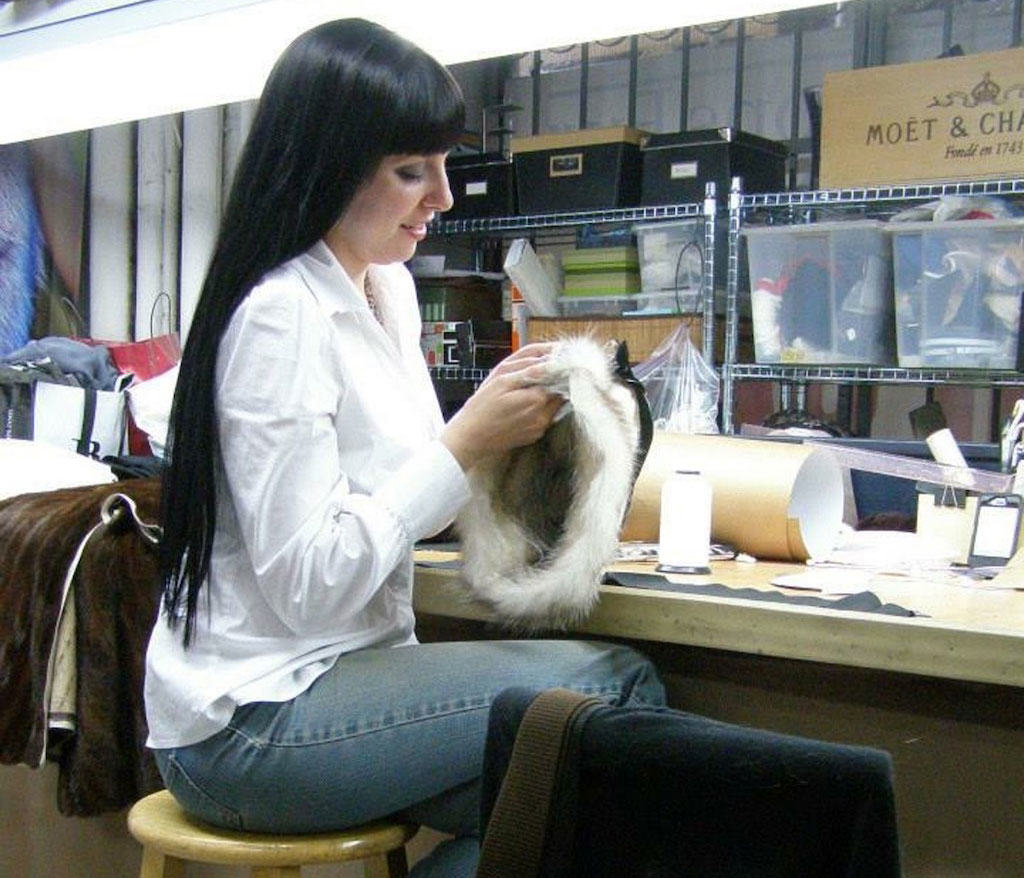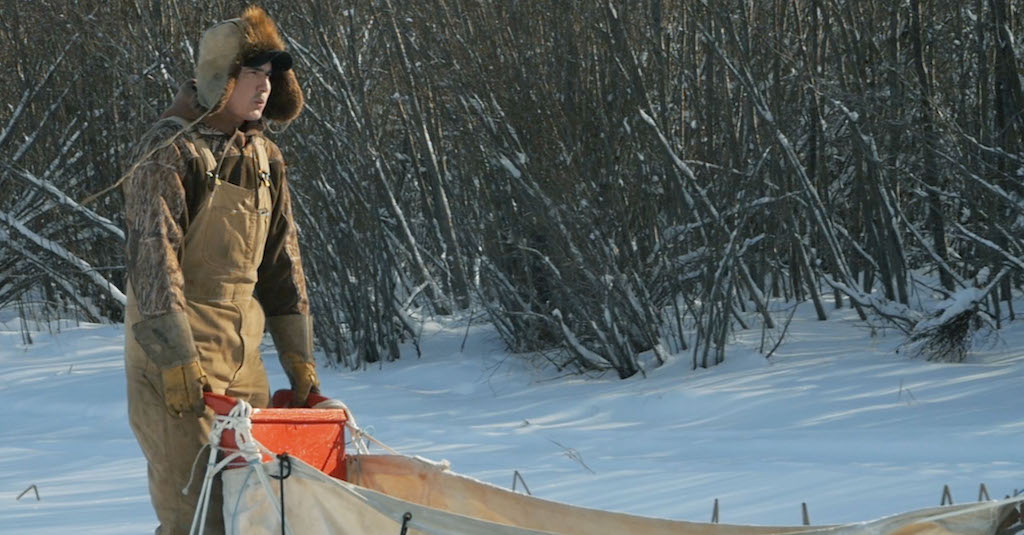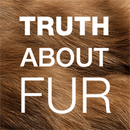Progressive Politicians Should Promote Fur, Not Ban It
by Alan Herscovici, Senior Researcher, Truth About FurProgressive politicians in Los Angeles, San Francisco, and now New York City are trying to ban the sale of fur…
Read More

Progressive politicians in Los Angeles, San Francisco, and now New York City are trying to ban the sale of fur in their jurisdictions, claiming furbearers die for products we no longer need. New York City Council Speaker Corey Johnson has proposed a ban "because I felt like it was the right thing to do in my heart." But is it the right thing to do?
“Progressives” pride themselves on supporting government action to promote social justice, equality, and, increasingly, protection of our natural environment. But the modern fur trade embodies many of the principles that progressive politicians claim to support.
Let’s look at some of the reasons why progressive politicians should be promoting fur, not seeking to ban it.
1. Fur Products Are Handmade by Skilled Artisans

In this age of industrialized mass-production, fur apparel and accessories are still cut and sewn by skilled artisans. These people maintain remarkable craft skills passed down from parents to their children through generations.
Because of the high value of the raw materials and the specialized skills required, fur products have never been made in the sweatshops that continue to plague parts of the apparel industry. Fur garments are one of the few things we buy that are still made individually, by hand. In fact, each fur piece is really wearable art, often involving 30 hours or more of skilled work to produce.
This remarkable heritage industry should be valued and protected by everyone who appreciates the cultural and human value of craft traditions.
SEE ALSO: Heritage products to warm the body and soul. By Brenda Dragon, president. Aurora Heat.
2. Fur Is Produced on Small Family Farms

More than half of the fur produced in the US (closer to 80% worldwide) is now produced on family-run farms. Fur farms are viable in regions where poor soil or harsh weather make other forms of farming difficult, and provide much-needed employment and income in many rural communities.
Industry standards (now being certified by third-party auditors) ensure that farmed mink receive excellent nutrition and care, in part because there is no other way to produce the high-quality fur for which North America is known. Farmed mink are fed left-overs from human food production - the parts of chickens, pigs and fish that we don’t eat, that otherwise might clog landfills. Mink manure, straw bedding and carcasses are composted to provide organic fertilizers to replenish the soil, completing the agricultural nutrient cycle.
Support for rural communities and sustainable agriculture are two important contributions of fur farming that progressive politicians should embrace, not scapegoat.
SEE ALSO: Facts about fur farming. Truth About Fur website.
3. Trappers Maintain Land-Based Knowledge and Lifestyles

Trappers are, in a sense, the last of the Mohicans. They are among the last people on Earth who maintain the hunter/gatherer skills and knowledge that ensured human survival for 99% of our existence as a species. They are among the few who go into nature alone, continually studying animals and their environment.
We all care about nature, but most of us now live in cities; it is trappers who sound the alarm when wildlife and their habitat are threatened by poorly-planned industrial activity. Trappers report eagle nests so loggers can avoid disturbing them. Like canaries in the mine, changing fur harvests can signal problems like mercury pollution harming mink reproduction.
We would need trappers even if we didn’t use fur. Regulated trapping protects land from flooding by over-populated beavers. It also protects human health (e.g., from rabies spread by over-populated raccoons) and livestock (e.g., from predation by coyotes) and endangered species (e.g., sea turtle eggs from foxes, raccoons and coyotes); and the list goes on.
Trapping in North America is strictly regulated by state, provincial and territorial governments to ensure that only abundant furs are taken and that the most humane trapping methods are used.
Especially in Canada, trapping also provides food and income for many First Nations communities.
Protectors of our land-based heritage and our natural environment, trappers should be recognized as true guardians of nature. The furs they produce should be respected and treasured by progressives. They should be purchased and worn with pride to support these unique lifestyles - not boycotted.
SEE ALSO: Reasons we trap. Truth About Fur website.
4. Fur Is Sustainable, Durable, Recyclable and Biodegradable
The massive over-production of inexpensive but poor-quality clothing is becoming a serious environmental problem. “Fast fashion” unfortunately also means “fast disposal” of increasing quantities of clothing that is only worn briefly. And as much as 80% of it is made of petrochemical-based synthetics, basically another form of plastic bags.
In landfills, synthetics do not biodegrade like fur and other natural fibres. And each time they are washed, they leach millions of plastic micro-fibres into our waterways that are now turning up in marine life - including species we eat, like oysters - and even in our drinking water.
SEE ALSO: The great fur burial. Truth About Fur proves fur biodegrades.
Intensive production of cotton, the second most common clothing material, is also causing environmental damage in many regions.
It is becoming clear that the only sustainable solution to this clothing crisis is to buy less of it, while ensuring the items we do buy are better quality and last longer with proper care. This sustainable future will include fur. Good-quality mink and other fur garments are often worn for 30 or more years, and unlike most clothing, can be taken apart and completely “remodelled” as fashions change. Fur is often passed down from mother to daughter, or granddaughter. Old furs can also be made into vests, pillows or other accessories.
And after many decades of use, fur can be tossed into the compost to return to the soil. Once again, we see that fur should be appreciated and promoted by environmentally-conscious progressive politicians, not banned!
Progressive politicians who are sincere about wanting to promote social justice, craft traditions, rural communities, and protection of our natural environment, should be asking how they can better protect and promote fur and our remarkable North American heritage industry. They certainly should not be seeking to ban it.
***
To learn more about donating to Truth About Fur, click here.







